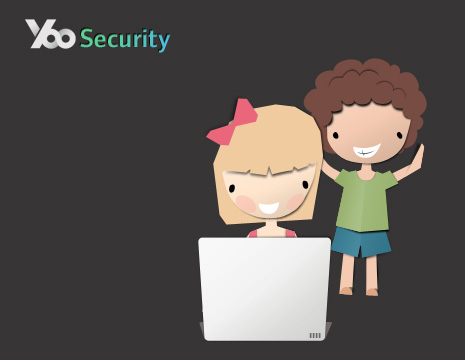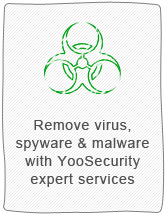If you take a look around, you will notice just how technologically savvy children have become. They are products of a completely digital age and they don’t know what it is like to exist without text messaging, Facebook, iTunes, and all the other inventions of the modern world. Kids are becoming familiar with computers and the internet at a remarkably young age. While this offers so many opportunities for enrichment and learning, it also opens up an entire world of danger that young children might not be able to detect. In addition to worrying about threats and dangers in the real world, parents now have to figure out how to keep their children safe in the virtual world of the internet as well.

It is not as simple as denying your child access to a computer, cell phone, or tablet. While this might be the easiest way to keep your child out of harm’s way, this method of protection does not give them the knowledge and confidence they need to make smart decisions when using the web to socialize with their friends, play video games, or conduct research for a school assignment. All of these things seem innocent enough, but as you know from your own experiences, distinguishing between valid web content and fraudulent web content can be quite tricky. If you, as an adult, have trouble navigating the murky waters of the internet sometimes, imagine how difficult it must be for a child to make judgment calls about the things they are exposed to on the internet.
If you are the parent of a child who spends a lot of time on the computer, you must educate yourself on how to keep your child safe without making them feel like you are an overbearing parent. The last thing you want is to force your child to feel like they have to keep their online activities a secret from you since you are always breathing down their neck to see what they are doing. Just like anything with your child, you have to strike the right balance between discipline and trust when policing their activity online. We have received more help requests from kids recently on how to remove viruses when they are watching videos online. Without sufficient knowledge online, more kids nowadays are vulnerable to these scam tricks and will fall into the setups from scam publishers by demanding ransom fees (e.g. the FBI warning virus is blocking locked computer for $100 dollar access fee and Security Shield fake AV is scamming computer victims every day for fake license), otherwise the victims would be locked out of their computers without any access.
We have compiled some important tips for you, as a parent, to follow in order to help you keep your children safe from the dangers and threats associated with the internet. For example, never allow them to pay for the ransom online from the so-called FBI Moneypak virus, FBI virus scam, Ukash RCMP virus, United States Courts $300 scam, and AFP ukash virus. Everyone adores the innocence of a child, yet it is this same innocence and naiveté that can lead them into dangerous situations before they can even understand what is happening to them. Children also take everything at face value. They don’t have the mental maturity to process that everything they see on the internet might not be true. These are the things you must keep in mind as you begin to talk with your child about using the internet responsibly.
How to Protect Your Kids Online – The Top Five Tips
Maintain open and honest lines of communication
It should come as no surprise to you that the most effective way of keeping your children safe online is by talking to them about the potential dangers that exist on the web. Kids of all ages have entire lives on the internet that are an extension of their social lives in real life. Gone are the days of picking up the phone and calling your friend. Kids prefer to text or write on their friend’s Facebook wall. Maintaining online friendships outside of school or activities is perfectly fine, as long as your child limits their online interactions to people they know and people that you know too. Kids, especially teenagers, thrive in the transparency of the web. They post pictures of everything they do, update their profiles with their current interests, likes, dislikes, hobbies, and even contact information like email addresses and cell phone numbers. All of this information can be visible to strangers within the same social network as your child. Even worse, if your child maintains a lot of public online profiles, their information is broadcast to the world with absolutely no filter.
Since kids might not be mature enough yet to fully grasp the potential consequences of this public display of their life, it is up to you to firmly communicate the risks associated with maintaining public profiles. You child views the internet as one big social party, not as a place where cyber criminals lurk looking for unsuspecting children to take advantage of. As a parent, you need to talk to your child on a daily basis about the things happening in their physical world as well as their virtual world.
By encouraging your child to be honest with you about their social life, it will be easier for you to recognize potential problems that arise or changes in your child’s behavior.
Keep Tabs on Their Social Media Pages
One of the best ways to monitor your child’s activity online is to create profiles for yourself on the social networks they belong to. You should tell your kids that you have created a profile, but be honest about your intentions. You need to establish trust with them and ensure them that you are not trying to spy on them, but rather keep an eye out on things to make sure they are staying safe and making good decisions online.
Social networks give users the ability to block other users, so be aware that your child may take advantage of this option as a way to keep you out of their business. If your child decides to block you form seeing their online profiles, there is a good chance they have something to hide or have something they don’t want you to see. If your child insists on blocking you, then it is time to give them some tough love. They can either unblock you, give you their log in information so you can access their accounts at any time, or they can disable their accounts.
If you gain access to their profiles, always keep an eye out for any strangers attempting to make contact with your children. If you don’t know them, then they shouldn’t be maintaining any sort of relationship with your child online. If you have an open and honest relationship with your child, you shouldn’t have to rely on so much investigative work to find out what is going on in their lives. However, anyone who has children knows how difficult it can be to get them to open up. This is why it is always a good idea to have some other way to keep an eye out on their activities.
They might resent you in the moment, but they will appreciate your care and concern for their well being later on. It might not happen until they have kids of their own, but they will realize that your efforts to keep tabs on their online profiles were only for their own good.
Talk to other Parents and Teachers about what their kids are up to online
If you can’t get your child to utter more than three mumbled words to you at the end of the day, then it is time to talk to other parents to see if you can gather some information and glean insight into your child’s social life. If all the parents in your child’s social crowd agree to try to talk to their children and stay informed about the things happening in their social life, then you have a much bigger network of people keeping an eye out for your child.
Teachers can also be a great resource for you to get an idea of how our child acts at school when they are not around you. Maybe your child is loud and boisterous at home, but shuts down and becomes shy at school, which might cause other kids to pick on them. Maybe your child is very quiet and reserved at home, but is constantly getting into trouble at school. All of these things can carry over into their online life in ways you might not overtly be aware of. Things that seem odd or out of place on your child’s online social network might make more sense if you are aware of the things going on in their day to day life.
When it comes to keeping your child safe online, there is no such thing as too much knowledge. When your child decides to open up their lives on the internet, they have to understand that this affects you and everyone else in the family too. They must also understand that if they choose to withhold information from you, that you have other ways you can get it. Again, they may not like the tough love at first, but it will all be okay in the end.
Don’t be afraid to set up parental controls
If you have a child that is completely out of control and disregards any parameters you try to set around their online activity, don’t be afraid to pull out the big guns in the form of parental controls. Parental controls help you set up blocks on certain web sites you don’t want your child to have access to. This should really be the final measure you take in trying to protect your child from the potential dangers of the internet. It is much better to make the effort to establish an open, honest, and trusting relationship with your child before simply taking away their privileges.
Give your child the opportunity to act responsibly online, using your guidance and advice. If they show you that they can handle themselves by acting appropriately, then they can continue to act somewhat independently on the internet. If they breach your trust, then you can slowly start to take away their privileges with the final attempt to keep them under control being parental controls. You don’t want to start out with an iron fist because that will instantly put your child on the defensive and give them a good reason to try to hide their online activities from you.
Make rules regarding your child’s online activity and stick to them
While the internet offers a lot of entertainment and resources for your child to take advantage of, you should still make sure that they do not completely immerse themselves in a virtual world. It is very easy for children to get caught up in something, especially if there is a fun game they love to play or a friend they constantly have to interact with. Remember, children don’t know how to set up boundaries and filters for themselves, and whether they admit it or not, they rely heavily on you to provide structure in their day.
Set up firm times that your child is allowed to use the internet and keep the family computer in the living room or dining room where you can glance at your child’s online activity every once in awhile. By allowing your child to access the internet only at certain times of the day, you can make sure they don’t get too sucked into that world. It is still healthy for children to play outside, participate in family game night, or go to the swimming pool with their friends from school.
Keeping your children safe online can turn into a 24/7 job if you lose a grip on the control you exercise on your child’s internet activities. The best way to make sure they keep themselves out of serious trouble on the web is to talk to your kids and become a trustworthy confidant as opposed to the tyrannical parent. Don’t be afraid to be honest with your child about the risks and threats that exist online. If you do not educate them and give them good reasons why they must be careful online, they will never learn to recognize the potential dangers for themselves.
You can keep your children safe online and still maintain a healthy relationship with them. It will require strong communication, patience, and a lot of trust, but if you set boundaries and firm rules, you will find that your child will respect you and appreciate your interest in their life.
If you are afraid that you are having troubles on keeping your kids safe or having no clue which way is better to talk with them properly on certain matters, you are welcome to contact YooSecurity professionals for specific solutions.
Published by Tony Shepherd & last updated on May 31, 2013 4:33 am













Leave a Reply
You must be logged in to post a comment.